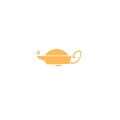Nurses talk constantly about the invisibility of nursing. We are all aware that the nursing voice on a wide range of health issues is not heard nearly frequently enough. This guideline aims to support individual nurses to increase their confidence in beginning to make a public contribution to wider health debates.
The reporting of news does not occur by chance but through the ongoing development of relationships between nurses and journalists. Many nurses, for various reasons, are fearful of being quoted by the media. This need not be so. The College of Nurses Aotearoa (NZ) Inc. encourages all nurses to develop a positive relationship with their local health reporter.
We believe it is every nurse's right and obligation to comment on matters relating to nursing and the health and well-being of individuals, groups and communities. Remember relating to the media is a political action.
This fact sheet is divided into two parts:
i. Useful tips and guidelines in how to build a positive relationship with the media in your area.
ii. How to write letters to the Editor and get those letters published.
As an organisation the College of Nurses Aotearoa (NZ) Inc. respects the right of individual members to hold independent professional opinions. Certainly the College develops policy and takes a position on very major issues.
However this does not preclude individual members from holding and expressing professional opinions on the myriad of health issues which arise on a daily basis. In this instance you identify yourself as a College member expressing a professional opinion, which is different from expressing an official College position.
PART ONE: Relating to the Media
Process:
With the exception of letters to the Editor it is easier to get published or have your comments recorded once you have developed a good relationship with your local health reporter or locally based journalists. Remember that journalists need material for stories and they need professional comment. You are doing them a service, not the other way around!
1. Introduce yourself and establish your credentials.
- Your credentials include the fact that you are a registered nurse, any additional qualifications and professional affiliations, and your particular practice area.
- A phone call describing a newsworthy issue is often a useful point of introduction and a good story is often a vehicle for establishing a relationship.
2. How do you know if what you have to say is reportable?
- The piece you are commenting on must be relevant to a larger continuing debate.
- The main characters involved should include prominent people or organisations.
- The event being reported should contain elements of tension or competition.
- Seek opportunities to promote innovative and interesting nursing practice developments.
3. Focus the interview with the media on how nurses/nursing understands the issue being reported.
4. It is imperative that what you are reporting is not only accurate but is also a critical analysis of the issue being discussed. The basis for nursing's critical analysis should always begin with the impact on patients and/or communities.
5. Receiving negative feedback is part of dealing with the media. We recommend that you are prepared for 'bad press' by anticipating its occurrence and responding in a considered and appropriate manner. It is imperative that College members support each other through both successful and unsuccessful encounters with the media.
6. To help minimise the likelihood of being on the receiving end of 'bad press' ensure that you negotiate some ground rules with the reporter. It is not common media practice that you will have the opportunity to see the finished article before it goes to print. You should expect an honest open relationship with the reporter. It is useful to establish what information is being sought, why it is being asked for and how it will be used.
7. Never ever assume that any comment you make is 'off the record'.
PART TWO: Writing Letters to the Editor.
Writing a letter to the Editor is one of the most effective ways of correcting an error, positively responding to a news or magazine article, educating the public about nursing, changing the way a topic is covered and increasing public knowledge about the subject and the visibility of nursing.
Process:
1. Be meticulous in following the guidelines provided by the newspaper and/or magazine re word length and layout.
2. Be direct but courteous.
3. Be specific in what you are commenting on and give specific ways the situation could be handled differently.
4. Respond within a couple of days pertaining to the article.
5. Ensure your facts are accurate.
Reference.
Buresh, B., and Gordon, S. (2000). From silence to voice. What nurses know and must communicate to the public. Ottawa: Canadian Nurses Association, Ottawa.
 Menu
Menu